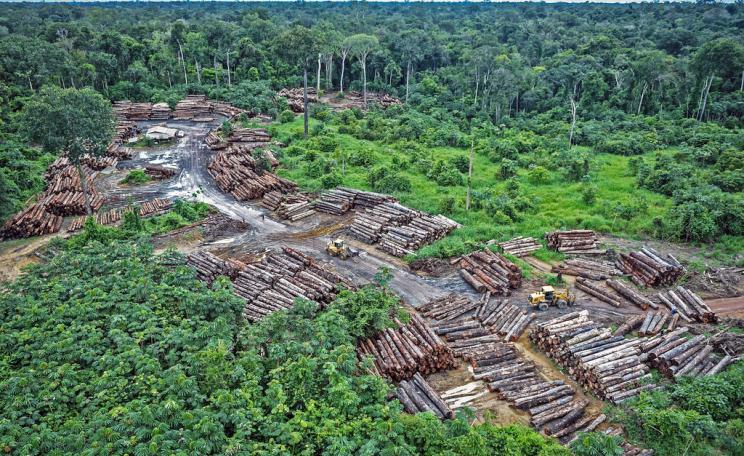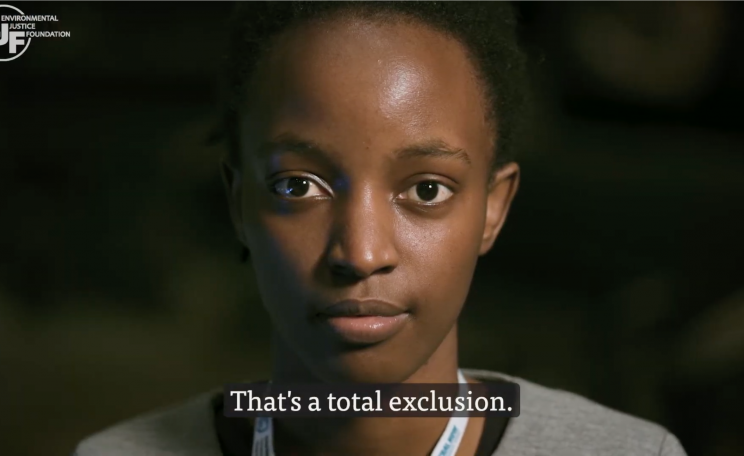When we lost the mangroves, we also lost our determination, our spirit and our dignity.
Mangrove forests sustain an incredible abundance of life, store vast amounts of carbon and provide food and income for millions of people around the world. But they are disappearing before our eyes.
This World Biodiversity Day we must recognise the globally important role these ecosystems, and others like them, play in securing a thriving future for all life and act to protect them before it is too late.
Mangrove forests make up one of the most productive and biologically diverse ecosystems on the planet, yet we are destroying them at an alarming rate.
Fish
Logging, climate breakdown, agriculture and urban expansion are decimating these vital coastal ecosystems – since 1980, 20 percent of the world’s mangroves have been lost.
“I live in a coastal area and people depend on the mangrove ecosystem for livelihood, [but] mangroves won’t exist in the future if we don’t take any action to protect them,” Pak Iwan, an Indonesian fisherman, told The Ecologist.
Lining coastlines throughout the tropics, healthy mangrove forests are home to a huge array of wildlife; from bacteria that capture nitrogen for the mangrove trees to use, to Bengal tigers that have adapted to swimming in the salty waters of the Sundarbans.
Animals come to nest, forage and hunt, and a multitude of threatened species, like the majestic dugongs, find refuge within them.
Moreover, these forests are nursery grounds for countless fish species and hold the key to thriving commercial fish populations.
Aquaculture
For example, in southern Florida an estimated 75 percent of the game fish and 90 percent of commercial species are dependent upon mangroves during at least part of their life cycles.
And, on top of food, income and resources, mangroves also hold cultural and spiritual significance for the communities that depend on them around the world.
Hendrik Hermawan of Akar Bhumi, Indonesia, said: “We all were born with nature [and] have a strong connection with the plants; planting is part of our culture and livelihood…when we lost the mangroves, we also lost our determination, our spirit and our dignity.”
Despite their clear and unique value, mangroves remain one of the most threatened habitats in the world and their destruction is rife across the globe.
When we lost the mangroves, we also lost our determination, our spirit and our dignity.
Shrimp farming, with its accompanying human rights abuses; irresponsible tourism; agriculture; aquaculture; coastal development and charcoal and timber extraction are pushing these habitats to the edge.
Restoration
Sadly, this is not surprising. Biodiversity hotspots around the world are targeted relentlessly for their resources with no notice paid to the wildlife or Indigenous communities that suffer as a consequence.
The impacts of mangrove deforestation are multifaceted. As these often-overlooked ecosystems are systematically destroyed, vast quantities of stored carbon are released into the atmosphere which further exacerbates climate breakdown, fuelling storms and extreme weather events.
Just 100 metres of mangrove forest can reduce wave energy by more than two thirds, but when these habitats are lost, coastal communities are left exposed and vulnerable to the ever increasing storm surges.
Hermawan added:“Because of fishpond over-expansion there was no protection. So when the tsunami occurred, it caused 90 percent loss, with mangrove it could [have been] reduced to 10 percent – we have the data. The world [must] learn that we need natural protection.”
Mangrove re-planting projects such as the Akar Bhumi mangrove planting scheme in Indonesia are vital for the successful restoration of these amazing habitats.
Precious
But this alone is not enough – we must protect and restore what we have left.
We need to transform our relationship with nature from one of exploitation to one of respect, protection and harmony. By working with these communities while also pushing for global policy change, we can protect these unique ecosystems and the people who depend on them.
Thriving natural ecosystems are instrumental to our well-being and the health of our planet. Our ability to survive and thrive globally depends on these precious and diverse ecosystems.
Every one of our human rights relies on a clean, healthy, and sustainable environment. Clean air to breathe, water to drink, food to sustain us: these ecosystems underpin all our lives, not just those of coastal communities.
The Post 2020 Global Biodiversity Framework must ensure the protection and conservation of mangroves and all other precious ecosystems, and these biodiverse regions must be placed at the very heart of climate action.
Biodiversity
Mangrove forests store up to four times more carbon per hectare than tropical rainforests – by protecting these ecosystems we protect ourselves.
Almost universally, between 2011-2020, we failed to meet the Aichi Biodiversity Targets – at COP15 this year we cannot afford to continue in this fashion.
When we spoke to Hendrik in Indonesia, he said: “I know knowledge is hard, because when we have knowledge, it means we also have the responsibility.”
We know what we must do to protect mangroves and global biodiversity, this knowledge makes it our responsibility to act immediately and safeguard the future of our planet. There is no time left to waste.
This Author
Steve Trent is the founder and CEO of the Environmental Justice Foundation.







